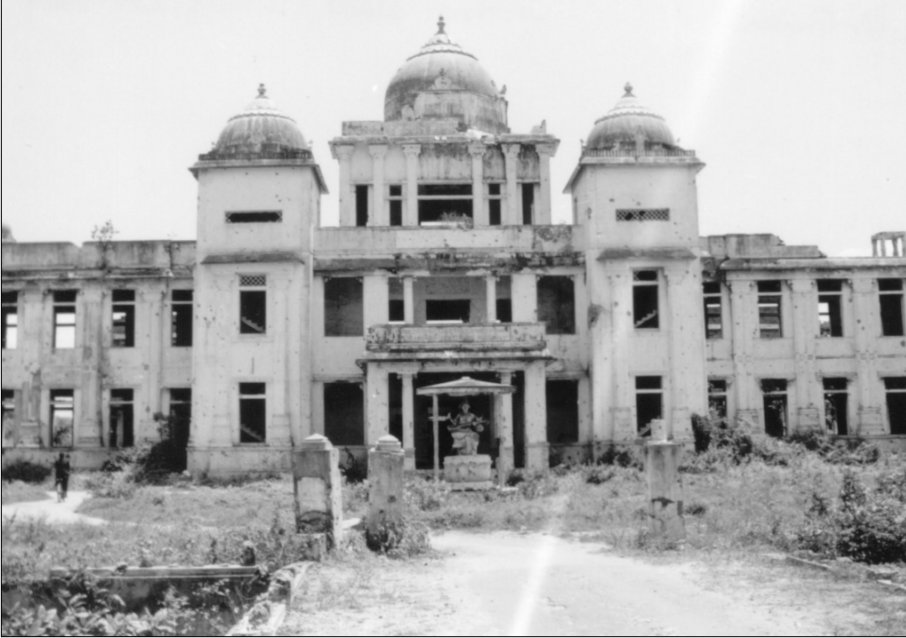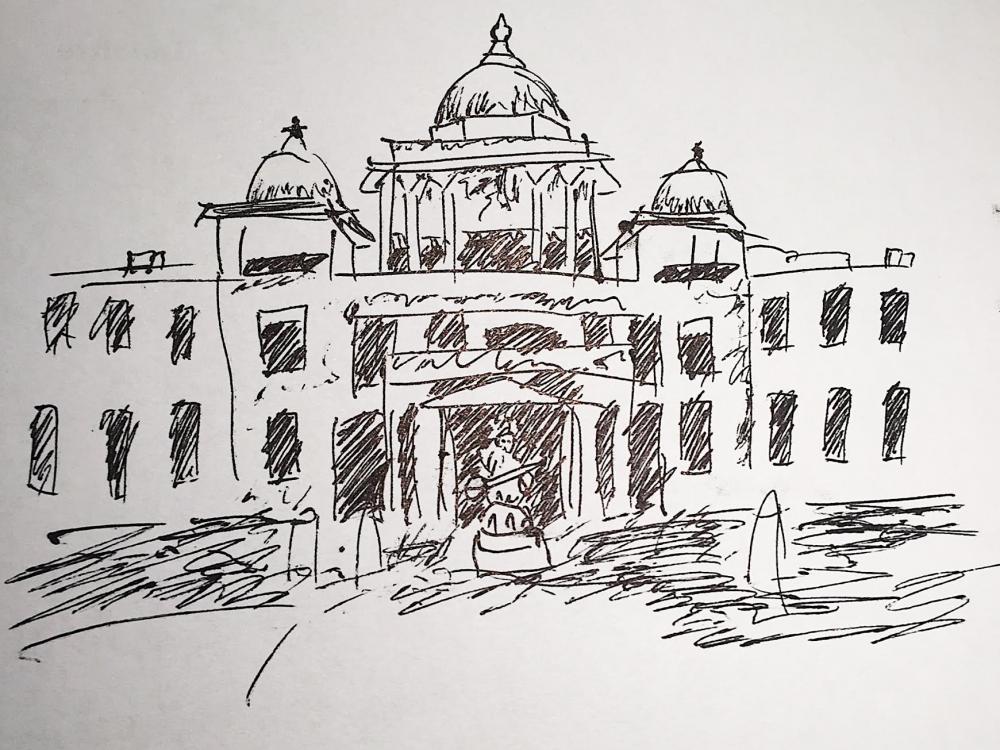A Brief Colonial History Of Ceylon(SriLanka)
Sri Lanka: One Island Two Nations
A Brief Colonial History Of Ceylon(SriLanka)
Sri Lanka: One Island Two Nations
(Full Story)
Search This Blog
Back to 500BC.
==========================
Thiranjala Weerasinghe sj.- One Island Two Nations
?????????????????????????????????????????????????Saturday, June 1, 2019
38 years on - Remembering the burning of the Jaffna Public Library


31 May 2019
On midnight 31st May
1981, the Jaffna Public Library, famous for being the crucible of Tamil
literature and heritage, was set ablaze by Sri Lankan security forces
and state-sponsored mobs. The burning has since been marked by Eelam
Tamils as an act of genocide.
Over 95,000 unique and irreplaceable Tamil palm leaves (ola),
manuscripts, parchments, books, magazines and newspapers, housed within
an impressive building inspired by ancient Dravidian architecture, were
destroyed during the burning. Some texts that were kept in the library,
such as the Yalpanam Vaipavama (a
history of Jaffna), were literally irreplaceable, being the only copies
in existence. It was one of the largest libraries in Asia.
The destruction took place under the rule of the UNP at a time when
District Development Council elections were underway, and two notorious
Sinhala chauvinist cabinet ministers - Cyril Mathew and Gamini
Dissanayake - were in Jaffna. Earlier on in the day, three Sinhalese
police officers were killed during a rally by the TULF (Tamil United
Liberation Front).
Nancy Murray, a western author, wrote at the time ''uniformed security men and plainclothes thugs carried out some well organised acts of destruction”.
"They burned to the ground certain chosen targets - including the Jaffna Public Library, with its 95,000 volumes and priceless manuscripts…no mention of this appeared in the national newspapers, not even the burning of the library, the symbol of Tamils' cultural identity. The government delayed bringing in emergency rule until 2 June, by which time the key targets had been destroyed."
The burning continued unchecked for two nights.
Homes and shops across Jaffna town were also set alight by the mob, including the TULF headquarters and the offices of the Ealanadu newspaper.

Virginia Leary wrote in Ethnic Conflict and Violence in Sri Lanka -
Report of a Mission to Sri Lanka on behalf of the International
Commission of Jurists, July/August 1981, that “the destruction of the
Jaffna Public Library was the incident, which appeared to cause the most
distress to the people of Jaffna."
The Movement for Inter-racial Justice and Equality said in a report, after sending a delegation to Jaffna,
"If the Delegation were asked which act of destruction had the greatest impact on the people of Jaffna, the answer would be the savage attack on this monument to the learning and culture and the desire for learning and culture of the people of Jaffna... There is no doubt that the destruction of the Library will leave bitter memories behind for many years."

The scholar and community leader, Reverend Father David reportedly died
from shock days after the incineration of his beloved institution. While
his statue in the library courtyard is surrounded now by the
spirit-soothing greens of local flora, his demise epitomises the loss
suffered by every member of the Tamil nation alive on that day, and each
generation born afterwards: the irrevocable loss of memories, of the
lives and deaths of our predecessors, of the beauty they created as well
as of the destruction they may have wreaked.
In 2001, then mayor of Jaffna Nadarajah Raviraj stated that the burning
“is in my memory”.''Still I feel like crying after 20 years,'' he said.
Mr Raviraj was assassinated in Colombo in November 2006. Still no-one has been held accountable for his murder.

Despite Tamil attempts to memorialise the catastrophic event, by keeping
part of the burnt wreckage preserved, the Sri Lankan government
allegedly insisted on ensuring all areas of the building were completely
rebuilt, leaving no signs of the damage done.
Yet, in 2010 the library was once again vandalised by a group of
Sinhalese tourists. The Sinhalese group had attempted to gain access to
the library whilst it was closed for an All Ceylon Medical Association
seminar that weekend. Denied entry the “tourists reacted by running
amok” said the BBC, “breaking some of the shelves and throwing books on
the ground”.
They also went on to vandalise a statue of veteran Tamil politician S J V
Chelvanayagam, remembered across the Tamil nation for spear heading the
Vaddukoddai resolution.
In December 2016, an ‘apology’ for the burning, by current Sri Lankan
Prime Minister Ranil Wickremesinghe, was criticised - after initially
receiving praise as a step towards reconciliation; the offhand manner in
which it was delivered revealing a marked disregard for how deeply
Tamils on the island continue to mourn the burning.


